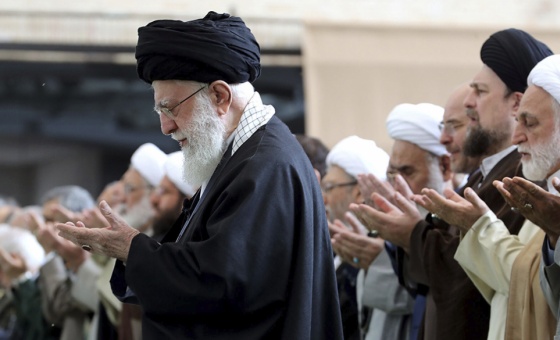This is the last article you can read this month
You can read more article this month
You can read more articles this month
Sorry your limit is up for this month
Reset on:
Please help support the Morning Star by subscribing here
Stand Up and Spit: the Main Event
Camden Centre, London WC1
5/5
If the only thing you know about ranting poetry in the early 1980s is Rick from the TV show, The Young Ones, it’s time to march yourself out to the yard and shoot yourself.
You remember Rick — he’s the self-proclaimed “People’s Poet” and adorably unlikeable character who wears badges of dissent pinned onto his suitably black jacket and pretends to be an anarchist.
I reckon readers of this fine publication know better than to think the ranters were of the same ilk as the puffed-ego wannabe that was Rick hiding behind his stuck-on badges.
Sure, ranters wore badges. Thing is, they haven’t taken them off. Unlike Rick it was no folly of youth, no lark for them.
They marched the march, arming themselves with the only instrument that was truly theirs — their voice — to protest against the misuse of power as they saw it. To this day they still fight the good fight, over 30 years since the mostly working class, white ranting youths and marginalised young West Indian dub poets found they were more alike than they were different.
Turns out that not much has changed since they were younger and slimmer. The government always gets elected back in. The poems and the poets still pack a punch that one cannot duck. The truths they speak remain true, and the messages have travelled through the years as fresh and as relatable as the first time they were performed — even if the poets themselves have grown distinguishably greyer.
Here’s the scene. A publicly funded civic centre, a stage with a single microphone in the centre, a simple black backdrop.
No fancy projections or banners to distract one’s attention. This was the original DIY generation, sticking together fanzines and starting indpendent record labels.
The audience queued up in front of the venue — old rockers, teenagers, ladies with dreadlocks, pensioners, 20-somethings, black, white, blue, red — every stripe accounted for.
Who else could compere a night like this but Mark Thomas. Witty, dynamic and unapologetically brazen, he warmed the crowd with his charismatic tales of travelling round the country building a manifesto or talking about his 100 acts of dissent, which included imagining the end of the monarchy, and encouraging German tourists in front of Buckingham Palace to do the same (illegal under the Felony Treason Act of 1848, an anachronistic law still on the books).
The line-up could read like a well-worn, hand-written, photocopied flyer. Tim Wells (the man behind Stand Up and Spit), Little Dave (now a healthcare worker), Ginger John (now bald and not so ginger), Janine Booth (trade unionist who still hates the Tories), Attila the Stockbroker (still stockbroking in any squat that needs a bard), John Hegley (with his ukelele and geeky love of facts), Linton Kwesi Johnson (LKJ, the elder statesman of dub poetry), Emily Harrison (not technically a ranter, as she was born in 1992), Joolz (“Ranting poetry was invented in my sitting room in Bradford”), John Cooper Clarke (no comment needed) and Porky the Poet (that’s Phill Jupitus to you).
While the ranting poets are known for their strident voices of political dissent, they didn’t bash the audience over the head with the sledgehammer of ideology, although they did deliver this in measures.
These are poets after all, humans highly attuned to humanity. Humour, tragedy, love, mental health — all made an appearance.
Wells’s I like My Flag I Do, written when he was a teenager, set a youthful tone pointing out the hypocrisy of the British ruling classes. Little Dave, who’s Being Short can be found on the seminal album The Oi! Of Sex, wrote compassionately about the challenges of being a nurse. Ginger John used absurdity to great comical effect while describing the life of someone on the outside looking in and scratching his head in wonder — his poem about making excuses as to why he wasn’t able to sign on on time took one surreal and hilarious turn after another.
Booth, a ranter who took a decades-long break to become a trade unionist and campaigner for disability rights, got the audience chanting along to her Mostly Hating Tories from her new collection of poetry by the same title.
The spirit of the late original ranter, Stephen “Seething” Wells, was kept alive by Attila the Stockbroker who read Wells’s Roger and who also brought the audience to tears with his poem about his step-father.
Seething Wells’s partner in crime Joolz delivered grave and ponderous observations so heavy the words plunked into our ears like rocks into a still lake. Her poem about watching the prostitutes outside her flat get exploited by the male punters delivered a line that could be a slogan for the ranting and dub poetry scenes: “I’m not supposed to talk about this./I’m not supposed to notice.”
Clarke had everyone in stitches and in awe at how he could have such cutting insight into the human condition and make it all rhyme and scan at the same time. His banter between poems is equally entertaining and it’s difficult to separate the two, although Get Off Drugs, You Fat Fuck pretty much sums it up.
Porky the Poet managed to rescue the difficult spot of having to follow Clarke, which he realised, he couldn’t. Like a true pro he played this up by described himself as “like that bloke who had to come after The Beatles on the Ed Sullivan Show.”
Upcoming talent was represented by Harrison, who writes about her mental health issues with self-effacing grace and humour. “When Your Girlfriend Tells You She’s Bi- But You Soon Find out She Meant Polar” is all you need to know.
If you’re reading this and you didn’t attend, you missed this century’s rarest and most valuable performances by one of the country’s most important living poets.
When LKJ, the definitive voice of British West Indians from the ’70s and ’80s, took the stage — “It was apparent to the black youth of my generation that the police had declared a war on us,” he said as an opener — the audience already knew they would be treated to an unforgettable experience, but they didn’t realise the significance of the venue to him, or to dub poetry.
During his time helping organise the International Book Fair of Radical Black and Third World Books in the Camden Centre, the very hall where this event was taking place, a young Jamaican by the name of Michael Smith read poetry and blew the minds of everyone there at the time.
LKJ understood his audience, a crowd who knew Smith was a commanding Jamaican dub poet in early-’80s Brixton who, at 29, was killed in Kingston, Jamaica, allegedly by political thugs because of his views.
When LKJ began reading Smith’s iconic Mi Cyaan Believe It this was the closest anyone was every going to get to hearing Smith perform himself — LKJ channeled a voice from beyond the grave in the very place where he first heard the poem.
- The next Stand Up and Spit event, Crossing Over: The Legacy of Ranting Poetry, a Michael Smith tribute at the Black Cultural Archives in Brixton on Thursday, 25 June. You can find more about the upcoming Stand Up and Spit series of events at: www.speaking-volumes.org.uk/sus/ Tim Wells has been documenting the ranting poetry scene and you can read about it at: standupandspit.wordpress.com/









